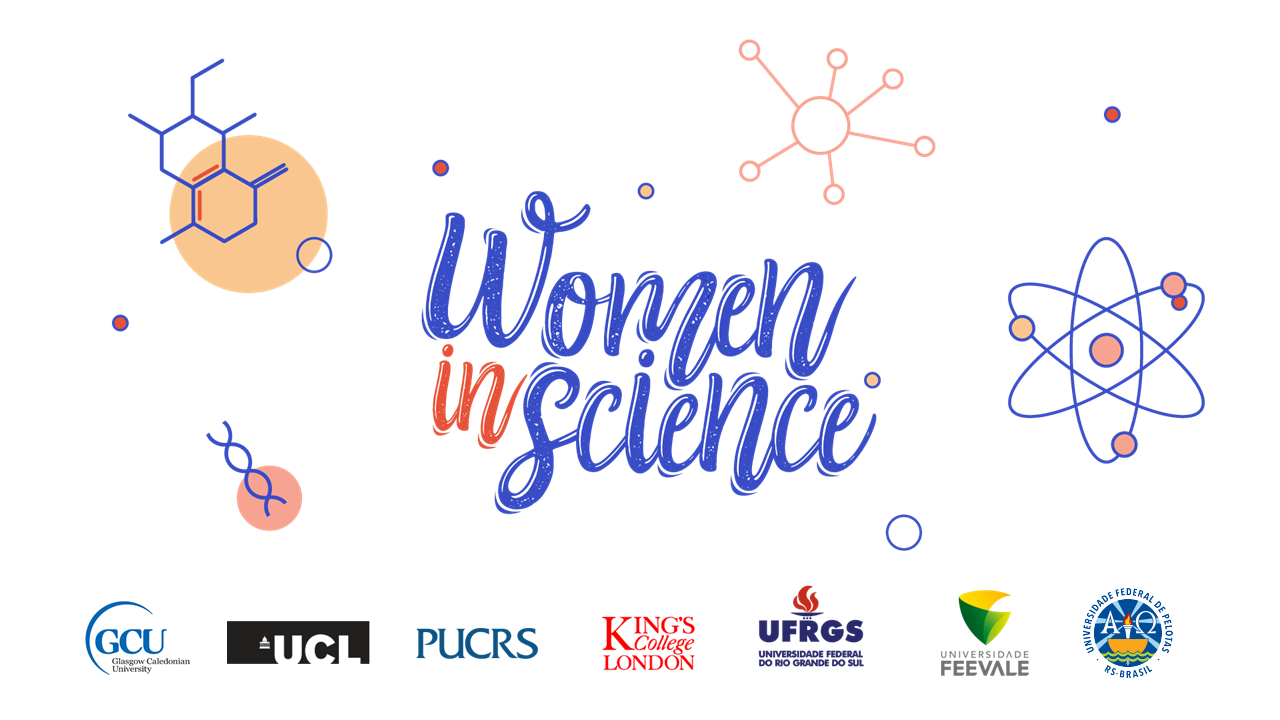luded for the second time in British Council call for proposals, the project now integrates 7 Brazilian and British universities
 After the partnership between PUCRS, UFRGS and King’s College London (KCL) in 2022, the new stage of the Women in Science project was included in British Council’s call for proposals Women in Science: Gender Equality Partnerships Call 2022. Now, another 4 universities participate in the project, two of them British and two of them Brazilian: University College London (UCL), Glasgow Caledonian University (GCU), Universidade Federal de Pelotas (UFPEL) e Universidade Feevale.
After the partnership between PUCRS, UFRGS and King’s College London (KCL) in 2022, the new stage of the Women in Science project was included in British Council’s call for proposals Women in Science: Gender Equality Partnerships Call 2022. Now, another 4 universities participate in the project, two of them British and two of them Brazilian: University College London (UCL), Glasgow Caledonian University (GCU), Universidade Federal de Pelotas (UFPEL) e Universidade Feevale.
In this new year of the project, participating Brazilian universities will work on the data collection in the institutions regarding where women are represented or not, leadership positions, areas of greatest concentration, among other aspects. The Brazilian universities are mentored by the 3 British universities which were contemplated by the Athena Swan Charter, a British initiative with the purpose of encouraging and acknowledging the commitment with the advance in women’s careers in science, technology, engineering, mathematics and medicine.
In addition to data collection, the project is also planning an event for the second half of 2023, with conferences, debates and workshops. On the occasion, the British researchers who participate in the project will be in Porto Alegre to take part in the activities.
The project’s website, which aims to promote initiatives and good practice, as well as biographies of researchers from the participating universities, will also be updated, including the journeys of the new researchers. To learn more about the Women in Science project, see www.pucrs.br/womeninscience.
Get to know the researchers who lead the project in each institution: Prof. Aline Pan (UFGRS), Prof. Andrea Streit (KCL), Prof. Juliane Fleck (Feevale), Prof. Marcia Mensko (UFPEL), Prof. Maria Martha Campos (PUCRS), Prof. Patricia Munoz de Escalona (GCU) and Prof. Patricia Salinas (UCL). Alongside them, other researchers also support the project’s initiatives, with the purpose of promoting gender equality and a greater participation of women in the scientific fields.